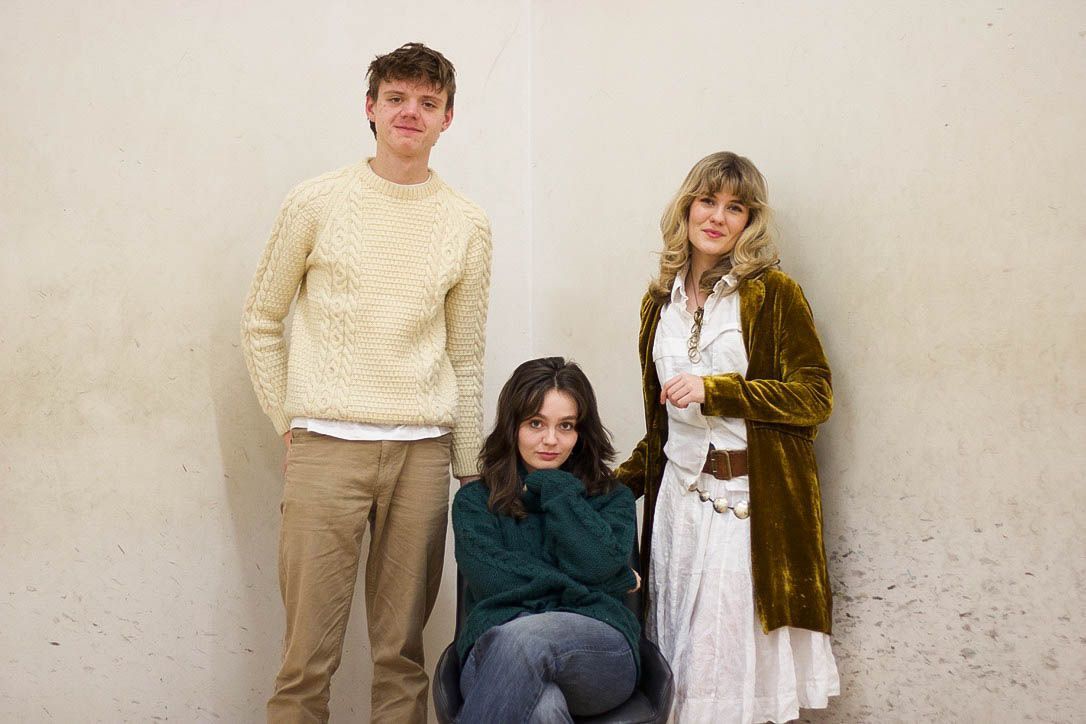
'Her Very Many Faces' Review: ★★★★
Performance Review
For a play dealing with such sombre issues, it was surprisingly a delight to watch.
Maya Marie
Winner of the 2022 Marlowe Other Prize, Her Very Many Faces came with high acclaim before the theatre doors even opened. If everything else fell through, there was the promise that there would be, at the core of everything, good writing. And yet, attending its opening night at the Corpus Playroom, I was still worried.
There is a tendency for writing about eating disorders to be self-destructive, alienating both its characters and the audience to the point where all empathy is annihilated and only discomfort and horror remain. It can feel like being forced to watch a mouse find its way into a tall container from which it cannot escape: pretty unbearable. However, the sensitivity, humour, and nuance of Maddie Lynes’ dialogue, the carefully coordinated plot points, and the highly attentive direction of Martha French, elevate Her Very Many Faces to quite a different fate. For a play dealing with such sombre issues, it was surprisingly a delight to watch.
The play’s first three scenes were focused primarily on its protagonist ‘Her’ (Sarah Mulgrew) struggling to mask her eating disorder. This set up the expectation that this plotline—accented with uncomfortable and inessential vignettes of ‘Her’ self-induced vomiting—would dominate the play: both a daunting and unappealing prospect. Yet, from this point onwards, as she returns to her first year of university following the Christmas break, the play opens up to the social domain and begins to tackle a much wider set of themes. Its main targets are class, gender politics in light of the #MeToo movement, as well as (perhaps unnecessarily, considering the gravity and arsenal of issues already considered) ageism.
Many people can relate first or second-hand to experiences of eating disorders. Her Very Many Faces poignantly captures the multifarious, multidirectional impacts of its protagonist’s illness. Especially moving was the moment in which the snobbish editor-in-chief Iris steps down from her pedestal to relay to ‘Her’ how her sister was ‘poorly’ and ‘lost her personality’. And yet, what makes Her Very Many Faces particularly effective is its exploration not so much of the eating disorder itself, but, rather, the many other aspects of the protagonist’s rapidly changing world that intensify her isolation and deterioration of self-worth. It is ultimately a story of the complications—social, emotional, and practical—that arise when one is transitioning to university and left to their own devices for the first time. The entry points for audience empathy are innumerable.
Although the treatment of some themes is exaggerated, particularly that of class, as ‘Her’ faces the heightened private school rhetoric of the repulsive Mils (who, in a quip, refers to her boyfriend as her ‘resident povvo’ or, on occasion, ‘chav’), such emphasis effectively represents how overwhelming the sudden openings into a completely new sphere can be. Moreover, these caricature-like moments are neutralised beautifully by ones of delicate nuance – nuance being a term that the protagonist persistently gestures back to as she refuses the binary reading of sexual abuse that wannabe journalist Iris attempts to chokehold her into.
This delicate balance in message and content was delivered seamlessly by the cast, most of whom also effortlessly doubled their roles—manneristic movements signalled the costume-less role transitions for Coco Emmanuelle Wheeler who played Mum/Iris and Joe Harrington, Tinder Date/Doug. Sarah Mulgrew’s performance of ‘Her’, imbued with constant subtle emotional shifts, was utterly captivating. Jake Burke, as both Sam and Dad, was stand-out. His performance reaches a heart-breaking apotheosis in the final scene’s personally excavating monologue, a moment enveloped simultaneously in warmth and devastation.
With, perhaps, space for more creativity in lighting and set design (though I must applaud the number of scenes constructed purely with wooden crates), Her Very Many Faces is an almost-perfect production, carried to an outstanding finish by beautiful writing and acting.
Photo credits to Miranda Crawford